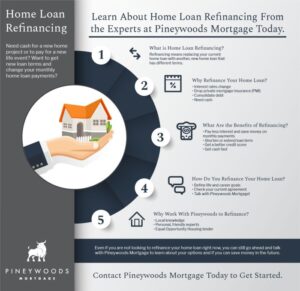
Short sale vs foreclosure opens up a crucial conversation in real estate, shedding light on two paths that homeowners may face when dealing with financial challenges. Both processes, while aimed at relieving financial burdens, offer distinct implications for individuals and their credit health.
Understanding short sales involves navigating a process where the lender agrees to accept less than the owed amount, often resulting in less severe impacts on credit scores. On the other hand, foreclosures represent a more drastic measure involving a bank taking possession of a property, which could lead to significant long-term consequences for the homeowner’s financial future.
Understanding Short Sales
Short sales can be a viable alternative for homeowners facing financial difficulties and unable to keep up with their mortgage payments. This process allows homeowners to sell their property for less than the amount owed on their mortgage, provided that the lender agrees to accept the reduced payoff. Understanding how short sales work, along with their advantages and disadvantages, is crucial for making informed decisions in challenging financial situations.The process of a short sale typically begins when a homeowner approaches their lender to express their intention to sell the property for less than what is owed.
The lender will then review the homeowner’s financial situation, which usually involves submitting a hardship letter, financial statements, and other relevant documentation. If the lender approves the short sale, the homeowner can list the property for sale. Once a buyer is found, the lender must approve the sale price before the transaction can close. While the process can be lengthy and complex, it often provides a way for homeowners to avoid foreclosure.
Advantages of Short Sales
Short sales present several potential benefits for homeowners experiencing financial distress. Here are some of the key advantages:
-
Avoids Foreclosure: Completing a short sale can help homeowners avoid the damaging effects of foreclosure on their credit history.
-
Less Damaging to Credit Score: A short sale typically results in a less severe impact on a homeowner’s credit score compared to foreclosure.
-
Relief from Mortgage Debt: Homeowners can often discharge a portion of their mortgage debt through a short sale, which can provide financial relief.
-
Potential for Future Home Buying: After a short sale, homeowners may be eligible for a new mortgage sooner than they would be after a foreclosure.
Disadvantages of Short Sales
Despite the potential benefits, short sales also come with certain drawbacks that homeowners should consider:
-
Time-Consuming Process: The short sale process can take several months and often involves dealing with banks and their bureaucratic systems.
-
Approval from Lender Required: Homeowners must secure approval from their lender, which can be uncertain and dependent on the lender’s policies.
-
Possible Tax Implications: Depending on the situation, the homeowner may face tax liabilities on the forgiven debt.
-
Market Value Considerations: The sale price may not reflect the true market value of the property, which could lead to losses for the homeowner.
Impact on Credit Scores and Future Borrowing Potential
Short sales can influence credit scores and future borrowing potential, but the impact is typically less severe than that of a foreclosure. While a short sale may lower a person’s credit score, it generally does not have the same deep and long-lasting effects as a foreclosure. Homeowners who complete a short sale may find that:
-
Credit scores can drop by 100 points or less, depending on the situation.
-
Future mortgage eligibility may be restored in as little as two to three years after a short sale, compared to seven years for a foreclosure.
-
Homeowners can potentially qualify for FHA loans two years after completing a short sale, making recovery more feasible.
Exploring Foreclosures

The foreclosure process can be a daunting experience for homeowners, often leading to significant financial and emotional strain. Understanding the steps and implications involved in foreclosure can help individuals navigate the situation more effectively. By familiarizing yourself with the timeline, credit impact, and potential preventive measures, you can make informed decisions regarding your financial future.The foreclosure process typically unfolds in several stages, beginning when a homeowner defaults on their mortgage payments.
This can happen due to various reasons, such as job loss, medical emergencies, or unmanageable debt. Once a default occurs, the lender initiates the foreclosure process, which may vary by state but usually follows a general timeline.
Foreclosure Process and Timeline
The foreclosure timeline usually spans several months, with specific steps that lenders must follow. Understanding this timeline is crucial for homeowners facing potential foreclosure.
1. Missed Payments
After missing one payment, the lender may contact the homeowner. If the payments continue to be unpaid, the lender will issue a notice of default.
2. Notice of Default
Typically sent after 90 days of missed payments, this notice informs the homeowner of the default and provides a timeline to remedy the situation.
3. Pre-Foreclosure
The homeowner has a window (often between 3-6 months) to catch up on payments, negotiate with the lender, or sell the home before foreclosure proceedings begin.
4. Foreclosure Filing
If the homeowner fails to resolve the default, the lender files a formal foreclosure notice, commencing legal proceedings.
5. Auction
The home is scheduled for auction, where it is sold to the highest bidder, typically within 1-3 months after the foreclosure filing.
Understanding the timeline of foreclosure can empower homeowners to take action before reaching the auction stage.
Credit Implications of Foreclosure
Foreclosure can severely impact a homeowner’s credit rating, often resulting in a significant drop of 100 points or more. This decline can hinder future borrowing and affect overall financial health for years. The repercussions of a foreclosure can last for up to seven years on a credit report, complicating efforts to secure loans or mortgages in the future.In contrast, homeowners who pursue options like short sales might experience less of a credit hit, typically around 50-70 points, making recovery more feasible in a shorter time frame.
This difference highlights the importance of exploring alternatives to foreclosure.
Reasons for Foreclosure and Preventive Measures
Understanding the common reasons that lead to foreclosure can help homeowners identify potential risks and take proactive measures to mitigate them. Some of the typical reasons include:
Job Loss
Unforeseen unemployment can lead to financial instability and missed payments.
Medical Expenses
Unexpected health issues can result in significant costs, making it difficult to stay current on mortgage obligations.
Divorce or Separation
Life changes that lead to reduced household income can put pressure on mortgage payments.
Poor Financial Management
Lack of budgeting and financial planning can lead to debt accumulation and defaults.To prevent foreclosure, homeowners can consider the following measures:
Communication with Lenders
Staying in contact with the mortgage lender can lead to potential payment modifications or forbearance options.
Seeking Financial Counseling
Professional advisors can provide budgeting tips and strategies to manage debt effectively.
Exploring Loan Modification Programs
Some lenders offer programs designed to adjust loan terms to make payments more manageable.
Consider Selling the Home
In cases of severe financial distress, selling the property before foreclosure can help avoid a significant impact on credit and provide funds to settle debts.
Early intervention and proactive communication with lenders can often prevent foreclosure and preserve financial health.
Real Estate Insights

Understanding the dynamics of short sales and foreclosures requires a look at the pivotal role real estate agents play in these processes. They act as intermediaries, guiding both buyers and sellers through the often complex transactions associated with distressed properties. Additionally, comparing the financial implications of building a home versus buying a short sale or foreclosed property sheds light on different investment strategies.
Here, we will delve into these aspects while providing a comparative overview of short sales and foreclosures.
Role of Real Estate Agents in Short Sales and Foreclosures
Real estate agents are crucial in navigating the intricacies of short sales and foreclosures. In short sales, agents help sellers negotiate with lenders to accept a sale price that is lower than the mortgage owed, facilitating a smoother transaction. They also assist buyers by providing insights into market conditions and potential pitfalls. For foreclosures, real estate agents help buyers understand the auction process, guide them through home inspections, and navigate any legal issues.
Their expertise can significantly impact the success of the transaction, ensuring both parties understand their rights and responsibilities.
Financial Implications of Building a Home vs. Purchasing Short Sales or Foreclosures
When considering financial implications, building a home comes with unique costs and timelines compared to purchasing a short sale or foreclosed property. Building a home typically involves securing financing, obtaining permits, and managing construction, which can mean higher costs and longer wait times before moving in. In contrast, short sales and foreclosures can often provide immediate occupancy but might require renovation and repairs.
Thus, buyers must weigh the initial lower purchase price of distressed properties against potential additional costs.
Comparison of Short Sales and Foreclosures
To better understand the distinctions between short sales and foreclosures, the following table summarizes key differences in terms of process, timeline, and potential outcomes for buyers.
| Aspect | Short Sale | Foreclosure |
|---|---|---|
| Process | Negotiated sale between the seller and lender, where the lender agrees to accept less than owed. | Property is repossessed by the lender after the owner defaults on mortgage payments. |
| Timeline | Can take several months due to negotiation and lender approval. | Typically quicker, as the bank or lender controls the sale timeline after foreclosure proceedings. |
| Potential Outcomes | Possibility of a smoother transaction, but no guarantees on acceptance by the lender. | May provide an opportunity to buy at a lower price, but often sold as-is, with no recourse for defects. |
The key to making informed decisions lies in understanding the nuances of short sales and foreclosures, as each path carries its own set of advantages and challenges.
Last Recap
In summary, while both short sales and foreclosures serve as pathways out of financial distress, they present different challenges and outcomes. Homeowners should consider their circumstances carefully, as the decisions made now can shape their credit ratings and borrowing potential for years to come.
Questions and Answers
What is the main difference between a short sale and a foreclosure?
A short sale involves the homeowner selling the property for less than what is owed with lender approval, while foreclosure is when the lender takes possession of the property due to defaulted payments.
Will a short sale or foreclosure affect my credit score more?
A foreclosure typically has a more significant negative impact on your credit score compared to a short sale.
Can I negotiate with my lender during a short sale?
Yes, homeowners can negotiate with lenders during a short sale to reach an agreement on the sale price.
How long does the process take for each option?
A short sale can take several months, while foreclosure can vary but often takes longer due to legal proceedings.
Are there any tax implications for short sales or foreclosures?
Yes, there can be tax implications for both, particularly regarding potential forgiveness of debt income that may need to be reported.





